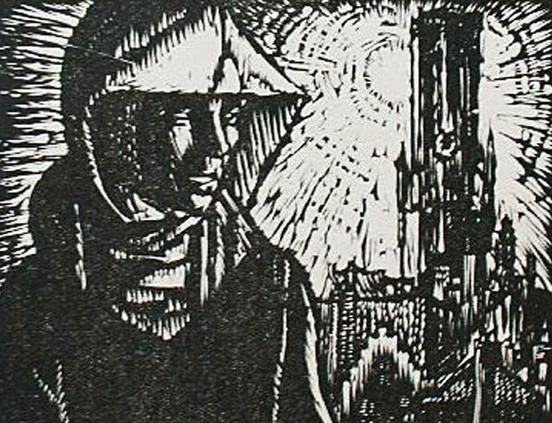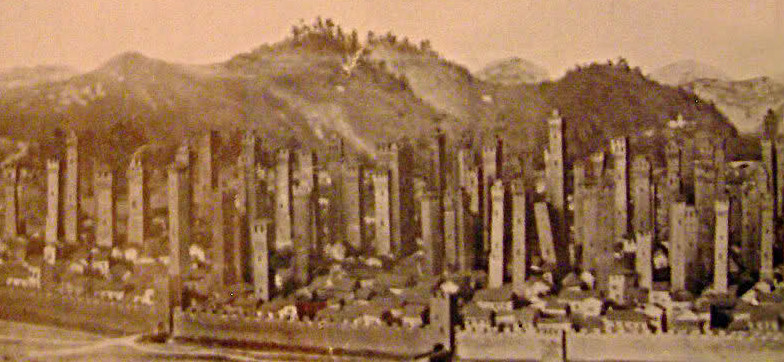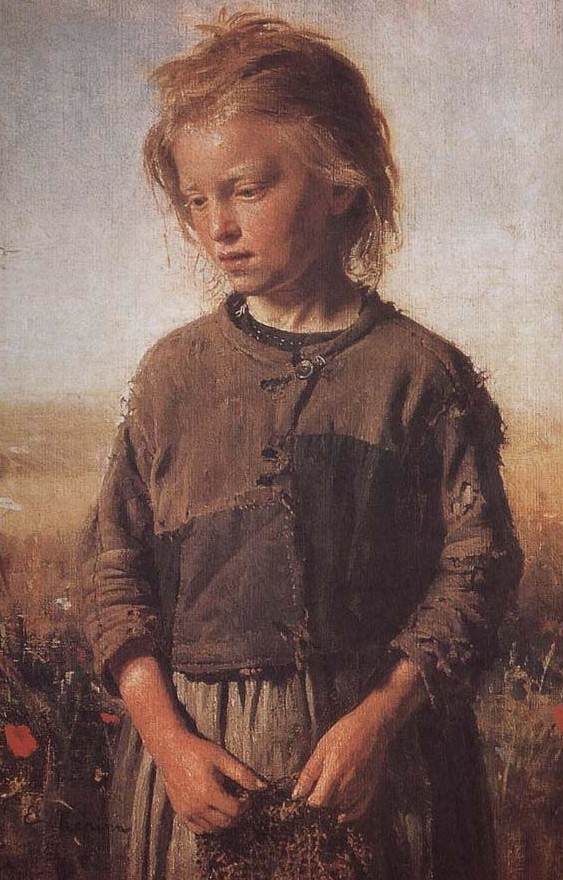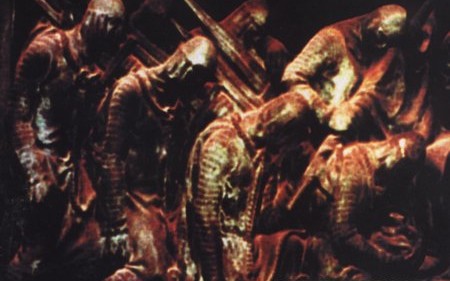I am trying to resume a story, yet when I sit down to work I feel so tired, distracted, unable to move forward. I am not sure in regards to contemplative efforts how this all fits in. Whether I should abandon the idea of writing or continue forward. It also has to do with recovery efforts and the fact the story evolved into severe drinking. Commencing the story during months of sobriety everything collapsed into demented isolated suicidal drinking. I have always been convinced that the majority of those centering their identity upon creative efforts annihilate their soul in the process. The desperate insecure need to become somebody of importance destroys the ability to mature and blossom spiritually. I am still not sure about myself. Where St John of the Cross and others teach us that the wisest act many can conduct with respect to spiritual growth is doing nothing, we tend to busy ourselves to the greatest degree. Amassing complexity upon complexity onto brokenness, the chance of unraveling ourselves becomes only more difficult with the advancement of deeds. I have always viewed the desert fathers as wise in their doing of nothing. It takes a great man to do nothing, concentrating energy and being upon spiritual growth, content in the nonattainment of a worldly identity. I have decided to post the opening of the story, a precise private motivation. I have made previous postings from the story. The truth of humanity is contained within so there is vulgarity and brutality. The squeamish of heart and mind should stop reading if affronted. The italicized text is scripture taken from Thomas of Celano’s ‘Life of St Francis’ (first book). My story is set during the life of St Francis. The idea of the italicized text is a divine proceeding throughout the telling. I have always found the biography by Thomas of Celano to be a spiritual manuscript in and of itself. I pay homage by utilizing the incredible breadth of scripture employed by the religious author. May God have mercy if my intent is perverse.

Man Tower
Comment on the moniker Man Tower. Defensive towers constructed by nobility during the High Middle Ages were essential to the landscapes and mindscapes of the time. Also ideas and concepts associated with the Tower of Babel. Man Tower embodies the corruption of tower building. I am not sure where I attained the following image, yet it is perfect in my imagining of a medieval city.

Medieval Towers
Breathtaking, the encompassing view of Assisi from the Rocca Maggiore, allowed the outcast orphan, there was a man, no reprieve from the anguish of a childhood, slaves of sin, within its fortified walls. Spectacular in nature, the sweeping vista offered the city and surroundings in splendor: churches and military tower fortifications dominating, weapons of iniquity, the flourishing Spoleto valley beyond defensive walls; crenelated gates providing access, meandering roads within and without, one snaking through an arid ravine, and in the far distance the rise of mountains—beauty unmistakable. Man alive, bourgeoning, inciter of evil.
Not all observers could admire the allure. One unable to appreciate was tall in stature. Alberto the Vanquisher, a zealous imitator, one gathered amongst the troops of Holy Roman Emperor Fredrick I, Barbarossa—Red Beard, saw nothing of majesty. Convalescing from the monumental treaty signing with Pope Alexander III, he rested with Barbarossa’s imperial forces. Interregnum, a time of no war, peace inapplicable. Assisi, once his home, produced tension, a distancing. Regarding a return to the city of his rearing, indifference dominated, tainted by an underbelly of bitterness, a subconscious staining. There would be no armies fighting in the lands, yet in his heart emotion churned upon an unsettled murkiness of deprivation. A war unacknowledged occurred internal. All meant nothing to the Vanquisher, denial and burial a way of subsisting. A man unconcerned with restoration, he pursued not healing. He would continue wandering, aimless in eternal regards. An unreliable steward, he felt no need to remain loyal to Barbarossa during a state of no war. What was the need to stay with foreign troops if there was no battles being waged?
The Rocca Maggori, constructed after the conquering of Charlemagne, towered over the city of Assisi. From the heaven the Lord looks down; He sees all mankind. The intimidating citadel staunchly rose from the highest point of Assisi, once sitting within Roman walls. Now, Conrad of Urslingen, for the sake of his own name, resided in the feudal castle. Appointed by Barbarossa as Duke of Spoleto and Count of Assisi, the man carried a corrupt reputation due to his association with Christian of Mainz, the archbishop of ill-repute. The people of Assisi viewed the towering structure with no admiration. Meant to be a sign of power and esteem, its presence created loathing, subjugation bellowing from its towering. Forces greater than individual prosperity and freedom its pronouncement. A, continuous warring its reality.
Alberto the Vanquisher placed himself beyond images and structures attached to identities. He removed his anger far from him, and for his own glory he bridled his sword so that he would not perish. Raised above, teaching himself how to grow the furnace of poverty, he relaxed from battle mode, dropping an attitude of aggression. There were times he sensed the hand of the Lord upon him. Scanning the city he knew as a child from a high place, sheltered by a castle he despised as a child, he did not feel such a divine moment. Details were unnecessary, nor contemplated. An instinctual nonentity apart from a killing force, he did sense a change of the right hand of the Most High. Directly, it had nothing to do with him, yet the inter-connectedness of all things when it came to the Almighty gnawed upon predispositions.
“Fierceness of Silence. You sit alone observing your city. What are you thinking? Does insanity wrench upon your mind? Have you gone too long without killing?”
Alberto did not reply, yet a slight turn of his head, distinct with the sole moving of eyes, allowed his commander to know he recognized his presence. The commander tagged him with the nickname due to his lack of speech. Man Tower held to silence, a thing few men could accomplish amongst warring troops. Men one fought with demanded to know your voice through time. Alberto, infamous, ignored the customs demanded by others. Skill in battle, fearless bravado, and tremendous size, standing over six foot six, allowed advantages.
“Ah once more you hold your tongue. We are through with you. The Emperor of the Holy Roman Empire moves on. We no longer hold you to service. You are free to do as you please. Go back to the cowards and weaklings who spurned you. There are always men in need of being killed and desiring to kill. God have mercy upon the men who endure your travels, you vile and singular combatant of the ancient serpent.”
Upon the ground, the commander threw a sack of coins. Alberto nodded, keeping his eyes upon Assisi. Behold, I will hedge up your path with thorns, and I will stop it with a wall. He rose, heading for his horses and armor adornment. Ignoring the sounds of the men celebrating, he prepared for departure, conducting no farewells.
Galloping the short distance to the walls of Assisi, memories emerged, a broken introduction to adulthood domineering. Travelling, motion altered his thoughts. He began to mull over, plummeting within himself. Without armor, stripped down, without surrounding commanders, knights, and foot soldiers, without the mask of war obstructing, an aberration budded, a flowering of bonds of vanities attempting. It had been years since he rode so exposed. He had thrown off from his neck the yoke of knighthood, the severity of slaughter.
Free from a mind concentrating upon brutality, empty glory, he opened a bit to the sun shining. Without the shielding of amour, he fully felt the wind upon his face. Invigorated, his hard heart, his life sustaining organ, did not pound so harshly, the blood not flowing with such extreme pressure. The further he moved from foreign troops, the softer the beating.
Emitting anxiety, Assisi waited. There he grew as a child. The complexities and loss of innocence remained a neglected mystery, forming unconscious barriers and resistance, creating an enigmatic knight of disdained reputation. No rod of justice, he took pleasure in perplexing others. Reconciliation with his past was never considered. Leaving as a child, believing himself to be a victim of a cruel hoax, he parted a monster. Returning with his warrior mentality passé, he thought of his mother. He would seek her. He must discover whether she was alive. Lepers could not be counted on for life.
“It’s the one who betrays his own for wealth. May God curse your soul, man harass your days, and demons disturb your vision during the night.”
“Silence my friend. In fact, you do not know what you are saying. It is the Man Tower, one strong and fully armed. He kills simply for the thrill of seeing others die.”
“In the name of the Lord God of hosts, I am not afraid of the bastard child of a priest. Liberate Israel, I proclaim. From conception to death, he is an unnatural life, one who should have never been brought into being. Evil gave him birth, while also sealing his fate. He stands no chance of redemption. He rode with the ruthless archbishop of Mainz against his own people. The apple does not fall far from the tree. His father and mother were rotten and into rottenness he grew. You good for nothing war whore born of severe sin why return to plague us. We are good men and woman struggling, as a society, against the essence and totality of who you are. You are wickedness.”
An old man, accompanied by another elder, both so frail it seemed death was only days away, confronted Alberto upon his horse. The bolder man spit in his direction.
Alberto halted his horses, observing the old men. Feeling nothing, he easily controlled the desire to kill. Reaching toward his sword, he only massaged his back. He kept his eyes upon the old men. One stared with vengeance. The other quaked in his boots. Alberto retrieved a portion of bread from his rations, along with several gold coins, tossing the items to the one who stared.
“I should refuse your bribe, yet there are others who can benefit.”
The one who quaked picked up the bread and coins.
“Let us go before the stench of the man finally ends our days of suffering.”
“Away, we must go. The night is upon us and the orgy moves our way.”
Bread in hand, the old men moved on. Alberto proceeded slowly, recalling his days with the archbishop Christian of Mainz. None were bloodier.
Tuscany felt the rage of the archbishop. Alberto joined him as he moved into Umbria. As one who finds an exquisite pearl, selling all he has to attain it, he pursued rank under Christian of Mainz. Aligned with foreign forces, he partook of the massacre of those he was born amongst. The Archbishop’s troops met no opposition they could not obliterate. A spectacle, the rapacious warrior priest, wielding a two-fisted hammer for the smashing of armor, was always first in battle.
Demanding excess, Christian devoured the lands and people he conquered. With no conscious, his men raped and plundered. His journey was a bloody circus of war. Bivouacking with a harem, he rollicked upon the lands he destroyed, surreally worshipping absurdity in both life and death. Within his truth, there was no higher law than chaos itself. A charmer and romancer, none could refuse his eloquence when he turned it on. Usually off, combat his natural mode, it was worse for his foe. His troops reaped the rewards of the brutal carousing. If luck prevailed, when the Sabbath arrived, the troops enjoyed the archbishop conducting mass, Father in secret.
Alberto, unseasoned upon joining the ranks of the archbishop, teach me to do his will, earned a dastardly reputation. His enigmatic distance between life and others created a void easily filled by the archbishop’s militaristic pandemonium. Performing for the imposing archbishop as a foot soldier, the eyes of majesty, he showed no remorse or mercy fighting against his fellow Umbrians. In fact, insanely drunk from waking to passing out, he was filled with great joy, amazingly able to physically carry on as no man should have been able to. Slaughtering, raping, ravaging, pillaging and inflicting his wrath upon the world as only one who sees himself as a victim can. He wanted all to know there were no ends he would not pursue in the bloodiness of battle. His hidden treasure being the vile reputation he obtained. In perverted faith and truth, the bloodthirsty archbishop recognized the savagery, applauding Alberto’s marauding, granting the mammoth youth a suit of armor after the annihilation of Terni. The troops rested for three days as the extra-large armor was cast and refined.
Stories abounded about Alberto at Terni after he singlehandedly executed over a hundred men. Superiors condemned the captives. Peers brought them to Man Tower, forcing them to kneel before him. He removed their heads. Losing his mind during and after the executions, he wandered the city searching for women to penetrate, never attaining climatic gratification. Physical pleasure consisted of sterility and disassociation. Internally, a lack of distinction existed regarding the removing of heads and raping of bodies. At night trying to sleep, he could feel his past dissolving, shadows filling the voids. The nonbeing of being and the being of nonbeing overwhelmed any desire for good. A minister of the Gospel, diametric to his deceased father, he was not.
An appointed time, darkness settling in his return to Assisi, his armor stowed upon his pack horse, Alberto recognized a parading commotion approaching. There was a boisterous procession heading his way. Disturbing a pack of dogs, forcing them to flee, he positioned himself and his horses in an alley for observance. He would watch those of the world pass by in their charade. Another dog came aggressively attacking into the alley, a leash dragging along. Alberto dismounted, sword in hand, prepared to protect his startled horses. He wasted no time dispatching the dog, driving his sword deep into its body.
“NO! NO!”
A boy came bursting into the alley. Weeping, he fell upon the dead dog. His tear stained face turned up to Alberto filled with fury. He drew a small knife as he crawled away from his dog. Sizing up Alberto, the panting boy knew he stood no chance, yet he could not flee due to the strength of his desire for revenge. He had to keep the object of scorn within view.
Alberto spoke. “Go child before you get yourself killed. There are other dogs to be tamed.”
Drumming from the street, bawdy singing, drew the attention of both Alberto and the boy. Absurdly, another boy appeared passing down the street as a soldier of Christ. Leading the raucous procession, among his relatives and acquaintances, costumed as a bishop, oversized proper staff and hat in place, he marched himself as high authority. Regally passing, he melodramatically played the part of clownish bishop.
Surrounding the boy, exalting his stupidity, were other boys pretending to be administers, lauding their ridiculous superior. Drunken adults participated also. Dancing and marching in honor of the diminutive bishop. Loudest of all followed a flat wagon hauled by oxen, crazy screaming voices demanding attention from its traveling stage. Circling the wagon, male drummers, singing warnings of evil women, danced about the street. Atop the cart, swigging wine, laughing crazily, scantily clad women caroused.
The procession halted, the wagon of sultry women stopping in front of Alberto’s alley. The men threw whatever they could at the women and the women posed themselves in scandalous positions. One shaking her naked breast at the world noticed Alberto in the alley.
“Tall knight in the alley I see you. Put on your armor and save me don’t you recognize me?”
A drunkard slovenly approached the alley, judging Alberto to be a wealthy knight of noble rank. Failing clarity, he spat sloppy words. “…to possess wisdom…is better than gold…to acquire understanding…is more precious than silver…”
The sluttish woman, ignoring the words of wisdom the drunk tried to convey, removed her skirt, massaging her hands over her body. Alberto watched.
“Tall knight you do not recognize me. I am the princess and they are leading me to be fed to the dragon. It was my horrible lot to be chosen as a sacrifice. Please save me.”
Another woman, dress torn and tattered, nearly knocked the princess off her feet, screaming as she did. “…servants of the most High God…”
The others carrying torches all joined in as they noticed Alberto. Alberto stepped out from the darkness of the alley. The boy steadied his horses. The women on the cart began moaning as one, two embracing in a drunken kiss. Attention was upon Alberto.
“You have come for the princess. I know you. I know you.” The naked woman waved her finger at Alberto. She turned, bending over, exposing her backside in a sensual manner. She turned back, licking her fingers.
“Come up here on the cart tall handsome knight because you have been exposed. All know you are St. George. You have been sent to save us.”
“St. George. St. George.”
“St. George. Save us.”
“Yes, save us from ourselves.”
The laughing reached a fever pitch as the procession once again proceeded forward. The naked woman fell as the cart jerked forward. It did not dampen her spirits as she manically bellowed upon her back.
As the flesh peddling cart and the final revelers paraded forward, a contrasting crowd followed. Old men and women, some huddling in tears, some praying rosaries, some looking inwardly with sorrow of heart, others pointing and scolding, trailed in the wake of the merrymakers. One carried a large cross. Following the reproaching elderly, flagellators, men screaming for repentance stumbled along, demanding retribution for scandalous, rebellious ways. Bloodied, stumbling through pain, the final portion of the procession moved passed Alberto.
Alberto returned to his horses, taking the reins from the boy. He observed the scrawny lad closer. His tattered clothes pronounced the status of a street child, a waif. He recalled the fierceness within the boy’s eyes as he drew his knife.
“You live alone upon the streets?”
“There are other boys I run with, however now they want to kill me.”
“Why?”
“They say I stole from one of the other boys while he slept.”
“Did you?”
The boy looked into Alberto’s eyes. “No and now my dog is dead.”
“So what do you do?”
“Calling together friends and neighbors, they will find me. I must flee the city to leave room for their anger.”
“Come with me.”
Startled, the boy stammered. “The Lord would free me from the hands of those persecuting my soul.”
“Do you think you can build fires and perform the task I will demand?”
The fierceness that was in the boy’s eyes upon drawing his knife returned. He straightened himself to his greatest height.
“Even, fasting and weeping, yes.”
Alberto recognized something within the boy, something very familiar. He cast his care upon the Lord.
“You can ride my warhorse. You are so light you will not burden him. You must be sure he remains tethered. The horse will kill you if he is not tied to me.”
Elegantly, the boy bowed.
“Rise. You will not bow to me. Just listen and do whatever I say. Even if you feel you know better, listen to me.”
“I will be obedient.”
“What is your name?”
“Ricco.”
“I am Alberto Abatantuono”
“You are Man Tower.”
“I am known by many names. People possess free will and with their tongues they inflict names. I allow no name to claim.”
The strangeness of the situation would not cease for the boy. He should have known who he was dealing with. No other knight possessed such great height. How did he not recognize the giant? Now the knight offered to take him into his service. The boy faced the situation, realizing it was beyond even his dreaming. He formed an inner fire, a conviction he would thrive. Everything he did for the knight, everything he did in general, would be done with the greatest effort and the greatest attention to detail. He was upon the brink of despair and now a future opened before him.
The past he easily fled from. Throughout life a distance blocked his perception from reality. His inner world never matched his experience. Misunderstandings plagued him. The other boys he worked hard to gain their trust, yet he always felt an outsider. One particular older boy, the one who accused him of stealing, despised him, constantly complicating matters. There were times he felt privileged with superior intelligence, only to have life so utterly crash down upon him—consequences debilitating, forcing him to struggle mightily just for survival. He was good with his hands, able to build things, carve items from wood with his knife. Pleasure immense in the work and creating, his little statues became gifts for others. A random little girl crying in the street would receive a delightful feline resting in sleep. These gifts and a good mind God gave him, yet he knew not how to make use of them.
There was a teacher from the university, a man who also taught children mathematics, and the reading of books. The concept of a university grew in status within Assisi. No home, no buildings, as the Church possessed churches the learning apparatus of finer knowledge lacked defined spaces. Wherever convenient and providing, teachers in association with a governing body, conducted classes for the learning of finer knowledge, entrance into professions of advanced skills and wisdom. The university proliferated understanding of depth and precision throughout the cities. One particular teacher singled out Ricco after observing one of his statutes, instructing him privately and taking him to his teaching lessons with him. Ricco treasured the lessons, amazed the man could so expertly communicate higher knowledge. Pleased the man saw something special in him, the orphan grew in confidence. His waifish existence became bearable, hope emerging within a mind able to grow through education. The time of learning ended when the teacher became ill, dying from a coughing sickness during a harsh winter.
The teacher of little time was the only and last person Ricco felt understood his thoughts, or for that fact even cared to know his thoughts. Others he learned to mentally hide from. He felt defensive about his ability to outthink the older boys. His intellect caused anger, focusing the older boys’ attention aggressively against him. He took to stealth in regards to attention, utilizing his cleverness to keep himself alive, showering it upon his dog, teaching tricks and obedience to the loyal canine he named Midnight.
“Let’s leave the city.”
“Where are we going?”
“Do not ask questions. If I want you to know something I will tell you.”
“I understand.”
“When we are around others, do not speak. Speak only if commanded. Watch me. Follow my example. I never speak unless it is of the upmost importance. Observe and watch instead of speaking or preparing to speak. You are worthless to me if you are constantly filling your head with possible, desired, conversations. Eliminate chatter in the mind. Stop arguing, stop trying to impress people, stop pleading your case in your mind. Stop crying like an infant to yourself. Learn to observe with an unobstructed mind. Notice every little detail and movement. In a pit and in darkness, surviving upon the streets, I suppose you are accomplished already to a certain degree or you would be dead. However, I demand more. Like a hawk, I want your eyes to penetrate everything. It may save both of our lives.”
The boy did not answer, understanding the seriousness of the words. Within the offered silence, Ricco perceived proper attention, a process paying homage to his intelligence. He sensed the knight sensed worthy attributes. In reflection, it overwhelmed Ricco. Man Tower spoke of permanency, the ability to dictate one’s future, a life beyond pitiful survival. In a matter of moments, his life transformed like a dream.
“Come here.”
The boy drew close to Alberto and his warhorse. Alberto guided the nose of the mighty horse into his hand, before speaking, “call him Shield of Wrath.” The horse nuzzled. The boy stroked his snout. Alberto brushed his mane, watching the boy closely. The boy possessed intelligence. He saw it in his eyes. Similar acts of taming were performed for the pack horse and traveling horse. All three of the horses became familiar with the boy.
“You will lead them out of the city.”
Ricco drew away, turning his back to Man Tower, observing Midnight. He went to his lifeless dog, stroking the corpse. He said nothing. Alberto appeared with a blanket, carefully gathering the dog in its fold. He secured the dog to his traveling horse.
“We will bury him outside the city. What did you call him?”
“Midnight for the darkness of the black that colored him.”
The entourage moved into the street, starting for the gate. Traveling only a few steps, a pack of ruthless boys appeared, blocking the street; like the mud in the streets, I trampled them down. The boys held knives, one sporting a short sword. Alberto motioned to halt. Ricco easily brought the horses to a controlled stop. Pleased, Alberto saw the horses already recognized his command, something they would not do for a nervous being.
“Are you children looking for something?”
“Yeah we want that thief hiding under your skirt.”
Alberto drew his sword. Other boys emerged from hiding, taking up stones to cast at him.
“That is the last insult you will utter to me. Show me this thief and I will assist you in apprehending him.”
“He is right there, holding your horses.”
“You are mistaken. That is no thief. That is my squire. My squire I will protect to the death. Move aside children. Do you not recognize me?”
The boys whispered amongst each other, looking back and forth from Alberto to one another.
Repeatedly, the name Man Tower was excitedly spoken.
“I will make a deal for a patient man is better than a proud. In order to pass through the streets and quarters of the city, I will pay a toll.”
The boys remained silent, staring with as much bravado as they could muster. Alberto retrieved some coins, tossing them to the boys. Greedily, they retrieved the coins, disappearing in argument regarding shares. Alberto imagined one or two of them might die in the settlement, in the flood of many waters. He motioned to advance. Ricco and the horses responded. Again Alberto was pleased with the response of the horses to the commands of Ricco. The horses accepted him. They recognized him as the leader of the herd.
“After burying Midnight, we will get you some proper clothing and footing.”
Ricco look into Alberto’s eyes, holding his attention. There was a strange light coming from somewhere unknown. Torch lights from a hidden place. The tender illumination made him think of the Holy Mother, and the thought she was moved by maternal instinct. Alberto held the stare. He became his helper, of the world, of the great King. Within the boy’s eyes was the question why, and more impressive to Alberto restrained tears. Alberto perceived the anguish of one of so little years; a weighty, hopeless loneliness dominating him. There was always hope, yet every turn in life crushed the hope from the previous moment. Unperceived to the bearer; intelligence, strength and loyalty were there within Ricco’s eyes. Warring, Alberto had been around many men, his name was spread. Percipient, he knew how to read a man, or in this case a boy.







Recent Comments